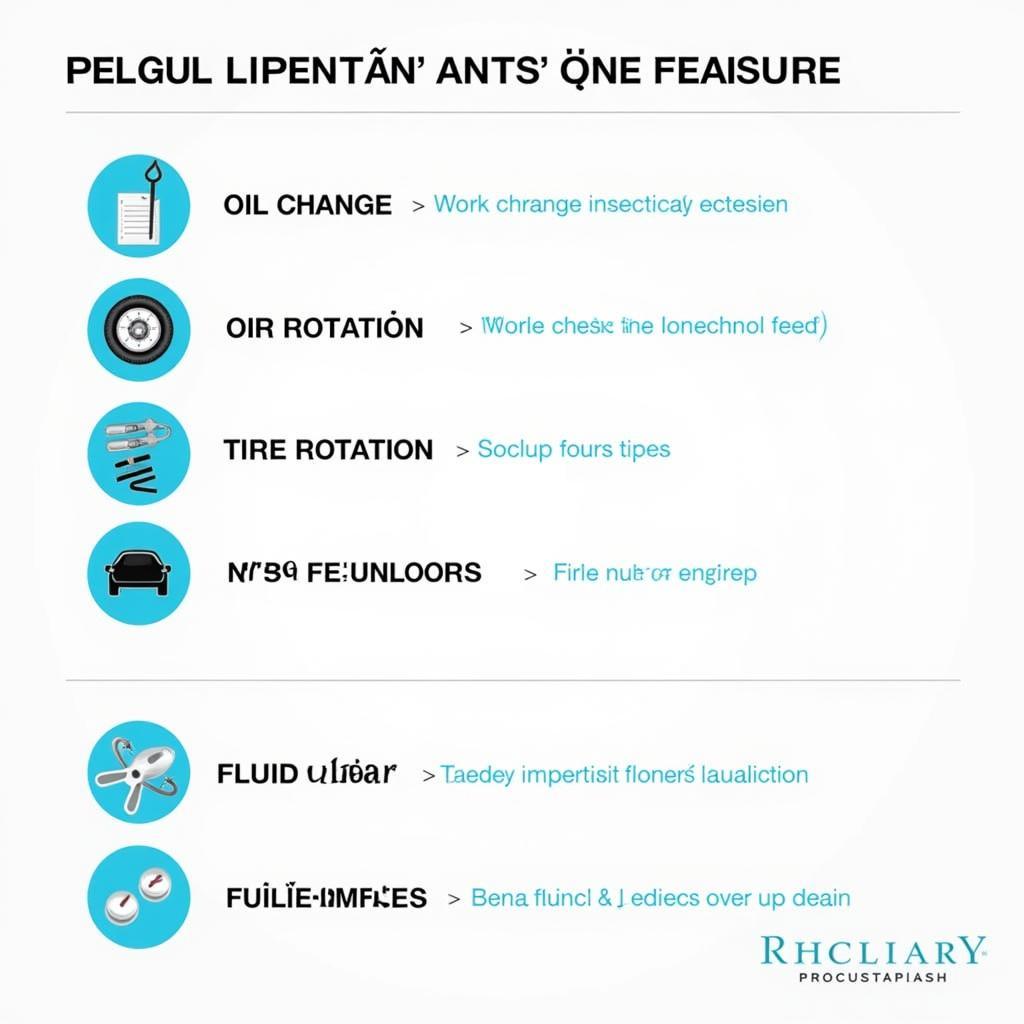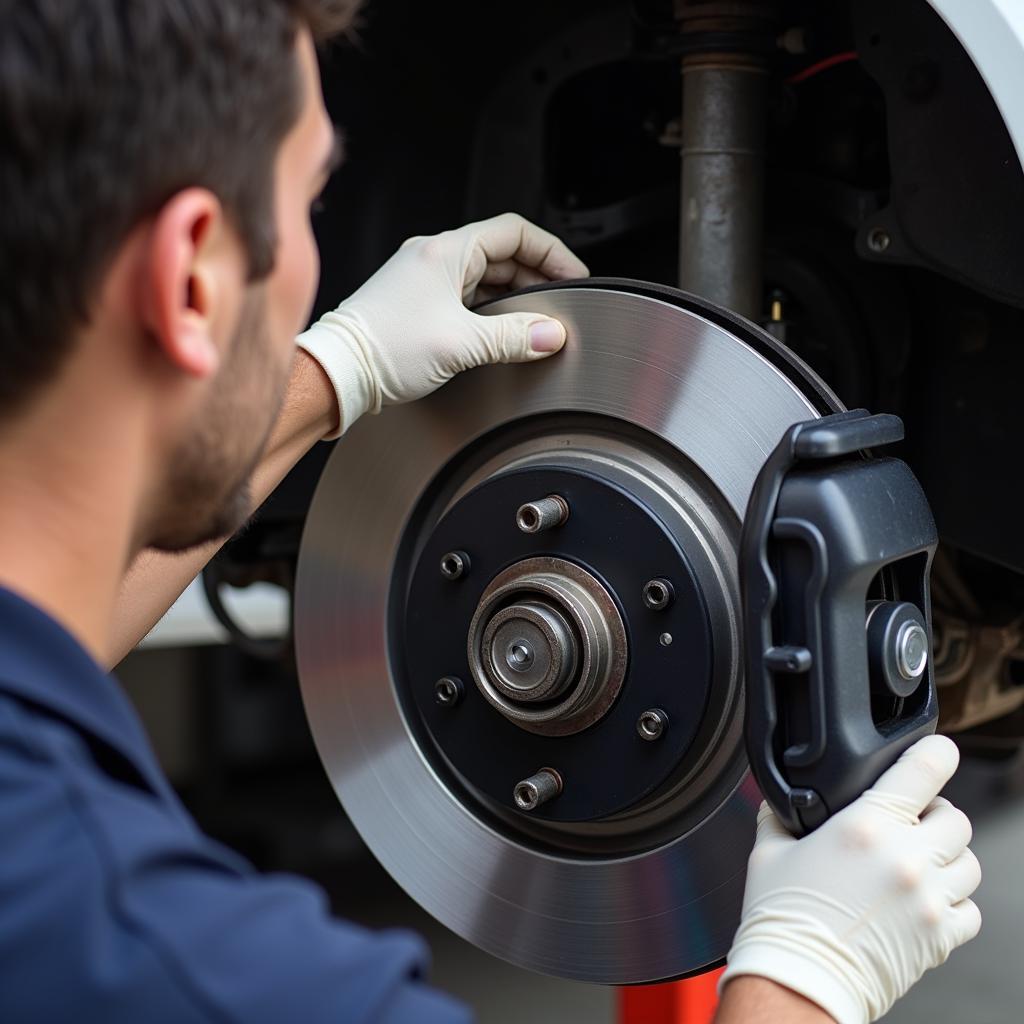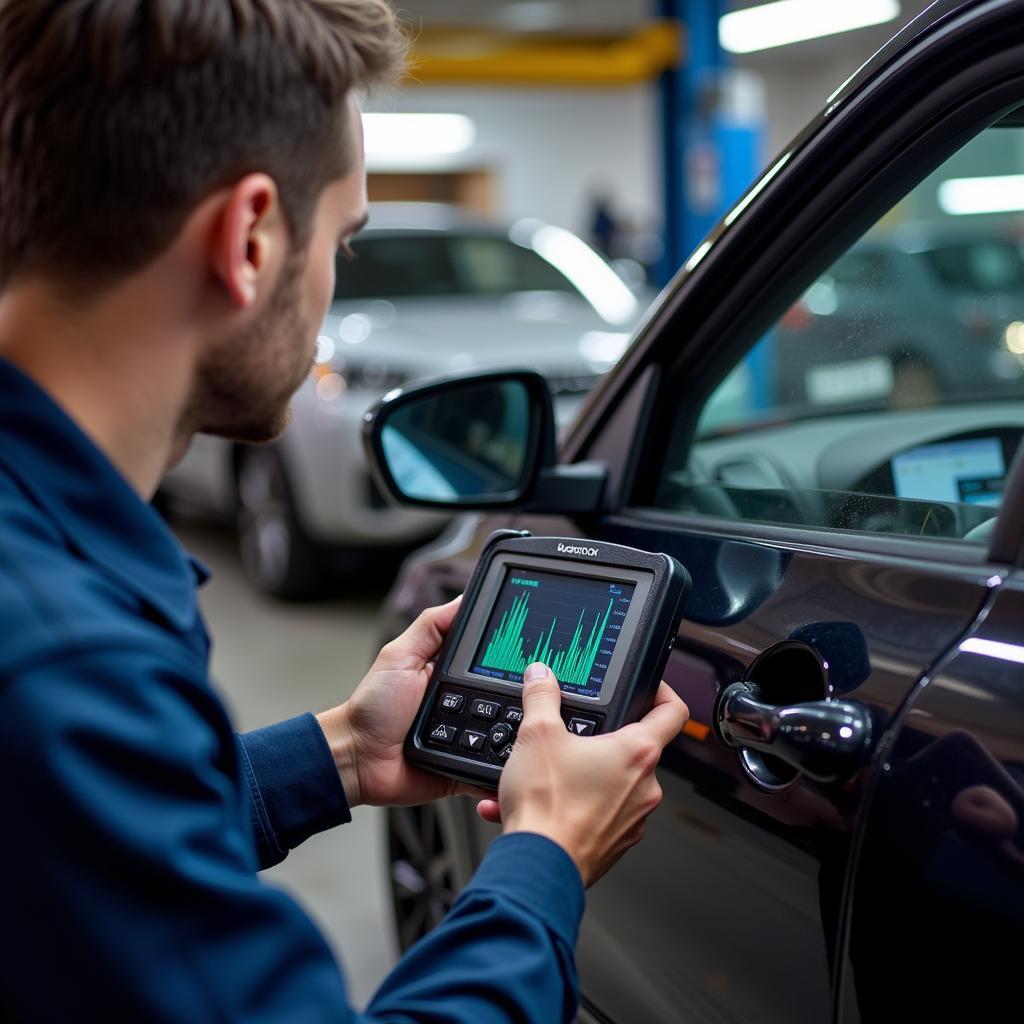What are the Car Services?
Car services encompass a wide range of maintenance, repair, and inspection procedures designed to keep your vehicle running smoothly and safely. From routine oil changes to complex engine overhauls, car services are essential for maintaining your car’s performance, reliability, and longevity.
Understanding the Importance of Regular Car Services
Regular car services are not merely an option but a necessity for every car owner. They play a crucial role in:
- Ensuring Safety: Regular inspections can identify potential safety hazards like worn brakes, faulty lights, or tire damage before they escalate into dangerous situations on the road.
- Optimizing Performance: Well-maintained engines, transmissions, and other vital components operate at peak efficiency, ensuring optimal fuel economy, acceleration, and overall driving experience.
- Extending Lifespan: Timely maintenance and repairs prevent small issues from snowballing into major problems, significantly extending the life of your vehicle.
- Maintaining Value: A car with a well-documented service history holds a higher resale value as it demonstrates responsible ownership and provides potential buyers with peace of mind.
 Routine Car Maintenance Checklist
Routine Car Maintenance Checklist
Types of Car Services: From Basic to Comprehensive
Car services can be categorized into various types, each addressing specific aspects of your vehicle’s maintenance and repair needs. Here’s a breakdown of the common categories:
1. Routine Maintenance:
This category encompasses the fundamental services that every car requires at regular intervals, typically determined by mileage or time elapsed. These services aim to prevent premature wear and tear on your car’s components and ensure its optimal functioning.
- Oil Change: The lifeblood of your engine, engine oil, needs regular replacement to lubricate moving parts, reduce friction, and prevent overheating.
- Filter Replacements: Air filters, oil filters, and cabin filters trap contaminants and need periodic replacement to maintain engine efficiency and air quality inside the cabin.
- Tire Rotation and Pressure Check: Rotating tires ensures even wear and extends their lifespan, while maintaining proper tire pressure is crucial for fuel efficiency and safe handling.
- Fluid Top-ups: Brake fluid, coolant, power steering fluid, and windshield washer fluid require regular checks and top-ups to ensure optimal performance and prevent potential damage to related systems.
2. Preventative Maintenance:
Going beyond routine tasks, preventative maintenance focuses on proactively addressing potential issues before they become major problems.
- Brake Inspections: Regular checks of brake pads, rotors, calipers, and lines can identify wear and tear early on, ensuring safe and efficient braking performance.
- Battery Testing: Checking the battery’s voltage and charging system can help prevent unexpected starting problems and ensure the battery’s longevity.
- Belts and Hoses Inspection: Inspecting belts and hoses for signs of cracks, fraying, or leaks can prevent sudden breakdowns and costly repairs.
 Car Brake Inspection
Car Brake Inspection
3. Corrective Maintenance:
This category involves repairs and replacements required to address existing problems or malfunctions in your vehicle.
- Engine Repair: From minor tune-ups to major overhauls, engine repairs address issues affecting performance, efficiency, and emissions.
- Transmission Service: Transmission services involve fluid flushes, filter replacements, and repairs to ensure smooth gear shifting and prevent costly transmission failures.
- Electrical System Repair: Diagnosing and repairing electrical issues encompass a wide range of components, including wiring, sensors, lights, and entertainment systems.
- Suspension and Steering Repair: Addressing problems with shocks, struts, tie rods, and other suspension components is vital for a comfortable ride and precise handling.
4. Advanced Diagnostic Services:
Modern vehicles rely heavily on electronic systems, requiring specialized diagnostic tools and expertise.
- Computerized Diagnostics: Using advanced scanners and software, technicians can retrieve error codes and diagnose problems with the engine, transmission, airbags, ABS, and other electronic systems.
- Performance Tuning: For enthusiasts seeking enhanced performance, specialized tuning services can optimize engine parameters, exhaust systems, and other components.
 Mechanic Performing Computer Diagnostics
Mechanic Performing Computer Diagnostics
Finding a Reliable Car Service Provider
Choosing a trustworthy and competent car service provider is essential for ensuring your vehicle receives the best care. Here are some key factors to consider:
- Reputation and Reviews: Look for service centers with a strong reputation in your community. Online reviews and testimonials can provide valuable insights into the quality of service and customer satisfaction.
- Certifications and Expertise: ASE-certified technicians or those affiliated with reputable automotive organizations demonstrate a commitment to professionalism and up-to-date knowledge.
- Transparency and Communication: Choose a service provider that communicates clearly about the services performed, provides detailed explanations of any issues found, and offers transparent pricing.
- Warranty and Guarantees: Reputable service centers stand behind their work by offering warranties on parts and labor, providing peace of mind in case of unexpected issues.
FAQs about Car Services
Q: How often should I service my car?
A: Refer to your car’s owner’s manual for specific service intervals. Generally, most manufacturers recommend a basic service every six months or 5,000-7,500 miles and a more comprehensive service annually or every 10,000-15,000 miles.
Q: What are the signs that my car needs a service?
A: Common warning signs include unusual noises, dashboard warning lights, fluid leaks, burning smells, difficulty starting, vibrations, or pulling to one side while driving.
Q: Can I service my car myself?
A: While basic tasks like checking fluids and tire pressure can be done at home, it’s generally recommended to leave more complex services to qualified mechanics with the necessary tools and expertise.
Q: How much does a car service cost?
A: The cost varies widely depending on the type of service, the make and model of your car, the service center’s labor rates, and the cost of parts.
For more information on car service costs, see our detailed guide: how.much cost a car service manteince.
Q: What should I do before taking my car for service?
A: Gather any service records, note any unusual symptoms or concerns, remove valuable belongings from the car, and ensure the gas tank is at least half full.
You can find a comprehensive checklist of things to do before your car service here: what to do before car service.
Conclusion
Understanding “what are car services” and their importance is crucial for every car owner. By adhering to a regular maintenance schedule, addressing potential issues promptly, and choosing a reliable service provider, you can ensure the safety, reliability, and longevity of your vehicle.
For further insights on car maintenance and related topics, explore these informative articles:
- why would a car have no service history
- when is it best to service your car
- what to bring to a car service
Remember, proactive car care is an investment that pays dividends in the long run, keeping you safe on the road and maximizing the lifespan of your valuable asset.
Need assistance with your car service needs? Contact us via WhatsApp: +1(641)206-8880 or Email: [email protected]. We have a dedicated customer support team available 24/7 to assist you.

